- Learning time
- 20 minutes
- First play time
- 60 minutes
Hardback
Designed by: Tim Fowers
Hardback is a more recent version of designer Tim Fowers’ Paperback, only with some subtle differences that make the game feel distinct from its predecessor.
As with the original game, Hardback is predominantly about making words. Players start with a small deck of cards that each have a single letter on them, but during play will be ‘buying’ more cards from a face-up display, and making their deck bigger and more powerful as they cycle through it.
In each turn, you’ll have a hand of five letter cards, and at its simplest Hardback just asks you to make a word with them. Each letter you use either scores you points, or gives you cash to spend on more letters. If the letters aren’t really combining very well for you, you can flip any of them over to become wild: thus, there is a lot of flexibility in how you can use your hand – the only catch is that wild cards don’t bring any points or cash rewards. Your cards then go into a ‘discard’ pile, and when your deck runs out these discards are shuffled and flipped face-down to become your draw deck again.
When you spend cash, you can take as many face-up cards from the display as you can afford (often just one!) and add it to your discards. Unlike your starting deck, these cards offer bonuses: there are three suits in the available cards, and if you play a word that has two or more of a matching suit in it, then the bonuses on these cards are all activated, bringing you more points, more cash, or possible some other reward: they’re all pretty easy to understand.
As well as (or instead of) buying cards, however, Hardback also allows you to purchase ink. Ink is potentially fantastic, but also potentially dangerous. On a turn where you have ink to spend, for each ink you may flip an additional card from your deck, increasing your hand size and, one hopes, making longer words with greater rewards. The catch now is that these newly-added cards cannot be turned into wilds: as much as they may help, they may also hobble, giving each flip a sense of tantalising risk and reward. (…You can also get whitener that allows you to discard an ‘inked’ card, but it is hard to come by)
The game continues until at least one player has made 60 points or more, at which point the current round is played to it’s conclusion and the player with the most points wins.
The guru's verdict
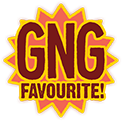
-
Take That!
Take That!
There's no direct interaction at all, so the only confounding you'll feel is at the hands of fate dealing you a bad card combo. Thank heavens for that wild card rule!
-
Fidget Factor!
Fidget Factor!
Moderate to high, depending on how many players are involved. Like a lot of word games, there's a built-in caveat that they don't tend to be high-velocity and everyone needs time to combine their letters in the best possible fashion.
-
Brain Burn!
Brain Burn!
Hardback is fairly rules-light, so the brain-burning is all about letter combos and the occasional points-or-cash dilemma of your rewards
-
Again Again!
Again Again!
Assuming you're onboard with what Hardback offers, it's guaranteed to change game by game: although your starting deck is always the same, the moment you add 3 or 4 new cards the variations in what you can (and can't) spell are astronomical

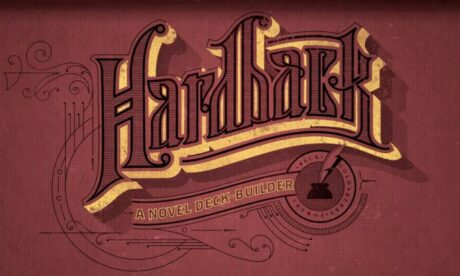
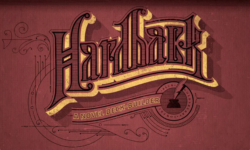
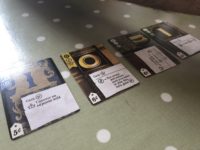
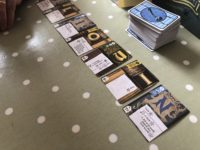
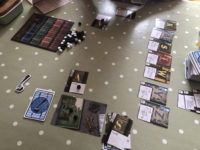
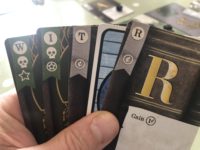


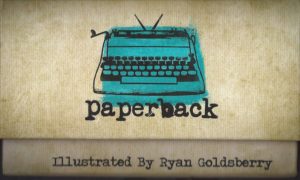
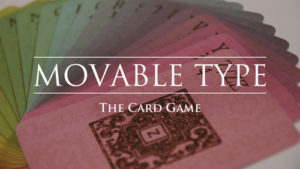
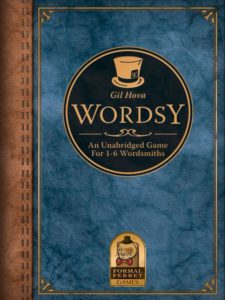
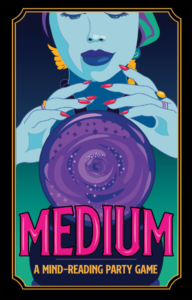
Sam says
I really enjoy Hardback, and prefer it to Paperback (which I also enjoy) because of two things: the freedom to turn any card into a wild makes the game feel less constrained (in Paperback, only specific cards are wild) and the luck-pushing fun of the ink rule. Those changes, combined with how the suited cards can combine into hugely rewarding turns, make Hardback a favourite of mine. True, you need to like word (or word-making) games and if you don't, Hardback won't be for you. But Joe and I are both fans of word games, and this is one of the best.